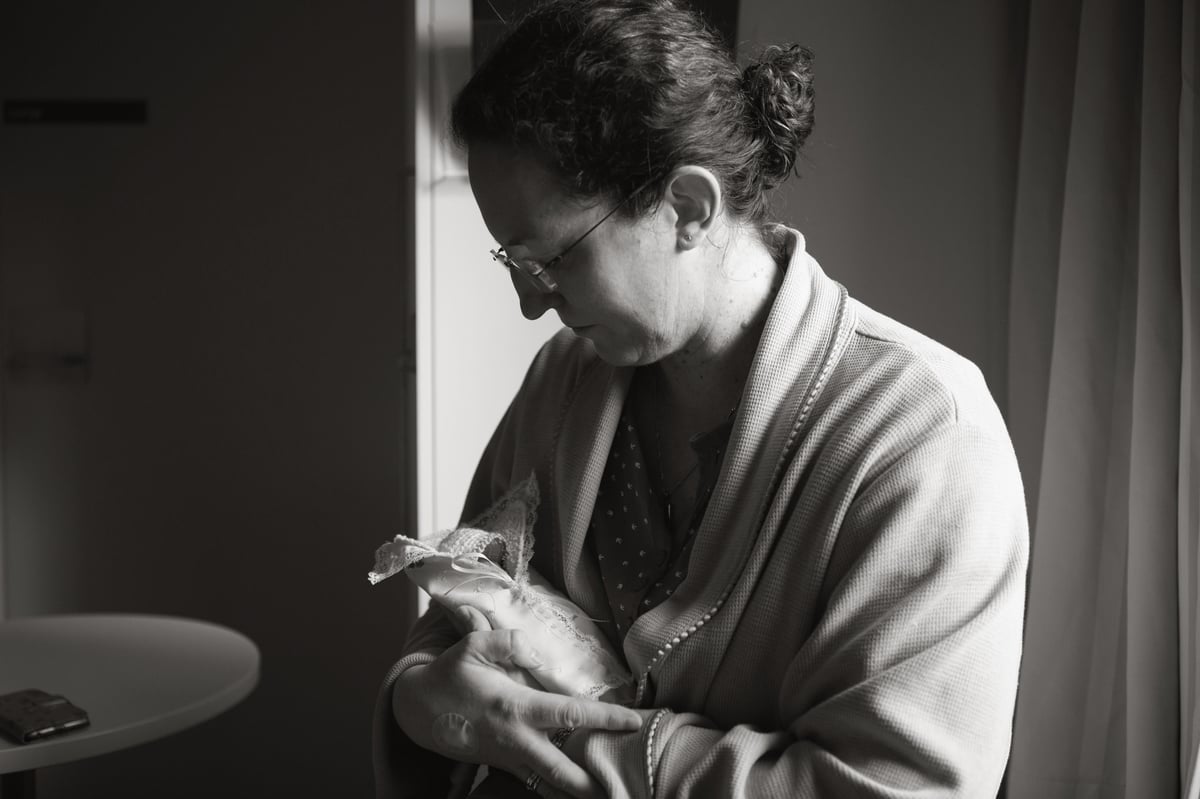
This story deals with the loss of a child and may be triggering to some readers.
Karen Schlage was overjoyed to discover she was pregnant in 2018. The 41-year-old public servant, who is based in Canberra, had been told her chances of falling pregnant were slim as her husband had recently been through cancer treatment.
"We had essentially decided not to pursue fertility treatment," Karen told Mamamia.
"Daniel was still not well and I was then 41 years old, so we wanted to focus on the two of us and what we had together.
"When I missed my period, I initially thought it might be the start of perimenopause but then I missed a second period and my breasts felt sore alongside some other telltale symptoms. I thought I'd better do a test and honestly it was pure shock and surprise - followed, of course, by joy - to discover I was pregnant after everything we had been told."
Watch: A tribute to the babies we have lost. Post continues below.
Karen was being cared for by a private obstetrician and from the start there were concerns about the way the pregnancy was tracking.

